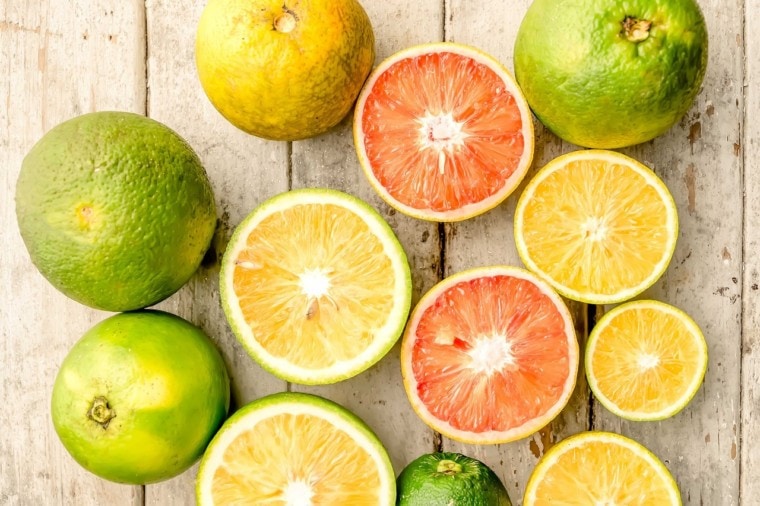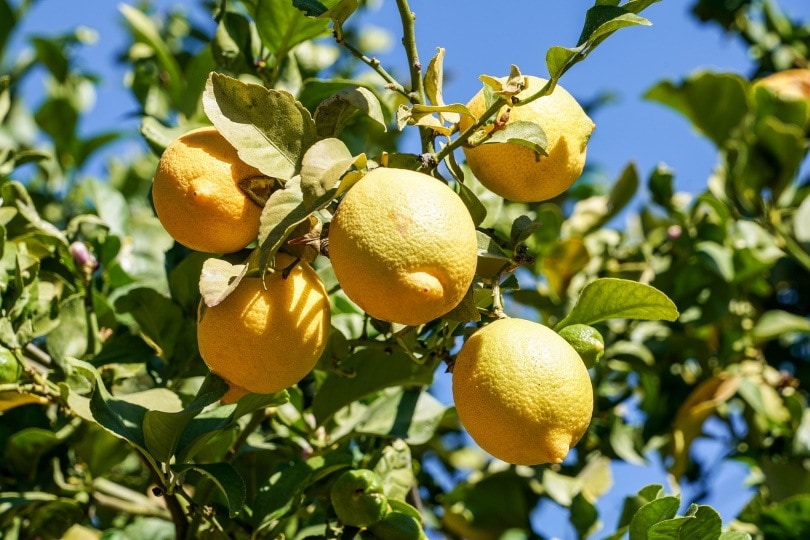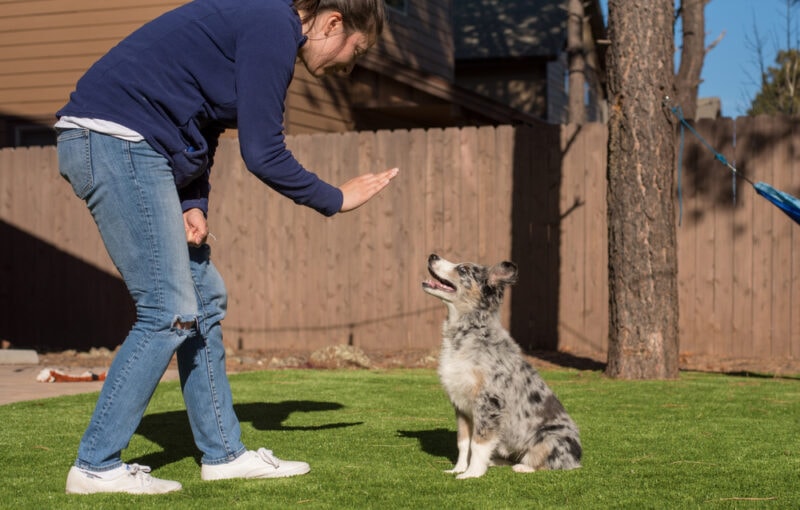
It seems natural that you’d want to share your food with your pup. After all, it is part of our collective history since domestication. That’s fine for some foods, like meat, because dogs are carnivores. While they can and do consume other types of food, when it comes to citrus fruit, it’s a definite and emphatic no.
It’s true that humans and canines share 84% of DNA. Nevertheless, that doesn’t mean we can both eat the same things. Most notably, chocolate is delicious to us and toxic to both cats and dogs. The same applies to citrus fruits. Lemon is toxic to horses too.
Problematic Ingredients

Several chemicals in citrus fruits spell trouble for pets. Orange juice has a pH of 3.8, whereas lemon juice comes in a 2.25. If you have acid reflux, you probably know how it can irritate your GI tract. The same applies to your dog. In fact, you’ll often find that citrus essential oils are ingredients in repellent products.
A couple of other chemicals are equally problematic and demonstrate that what is okay for us doesn’t always work for pets. Psoralen is an organic compound found in citrus fruits. Healthcare uses it as part of psoriasis treatment when using UV radiation. However, it can irritate both your eyes and respiratory tract, as well as those of your dog.
Even when used for medical treatments, psoralen can increase the risk of squamous cell carcinoma in humans. It’s worth noting that psoralen is also found in celery, parsnips, and figs, making those foods off-limits for your pet too. This isn’t the only problematic chemical found in citrus fruits
Limonene gives an orange its signature scent. It’s also found in certain species of pines and firs that are aromatic. It can cause skin and eye irritation. This compound can aggravate your GI tract if you ingest a large amount of it. It’s also highly inflammable.
Symptoms and Treatment
Image Credit: PixabayDogs will be dogs, and sometimes, they get into things that they shouldn’t. They don’t always pause to figure out what they’re eating either. Just watch a hungry pooch attack their food when being fed. If your pup does ingest citrus fruits, noticeable symptoms include:
- Contact dermatitis
- GI distress
- Nausea
- Vomiting
- Depression
- Tremors
Treatment for accidental ingestion of citrus fruits deals primarily with the symptoms. You shouldn’t induce vomiting because it can further irritate your pet’s GI tract. It can lead to possible respiratory issues if your pup inhales citrus essential oils. Other supportive care, such as IV fluids, is sometimes necessary if your dog becomes dehydrated.
Fortunately, most pets recover quickly once the food is out of their system. Your vet will likely advise you to feed your pup a bland diet of rice and broth to help their GI tract heal.
- Related Read: Is Xanthan Gum Bad for Dogs? What You Need To Know!

Tips for Avoiding Issues
Pets vary in their reaction to the toxic chemicals in citrus fruits. These also occur in other foods that you shouldn’t give your pup. If your dog is sensitive, it’s best to avoid using any skincare products that contain these essential oils. It’s also something to consider if you want to toss your pooch a stick to fetch. Give pines, firs, hemlocks, and beech trees a pass.
Final Thoughts
In many ways, owning a dog is like having a toddler in the house. You have to watch what they get into and make sure to keep potentially toxic foods away from them. Citrus fruits rank high on that list. While they aren’t as dangerous as grapes or chocolate, you should never share an orange or grapefruit with your canine companion.
Related Reads:
- Can Dogs Eat Carrots? What You Need To Know!
- Can Dogs Eat Turkey? What You Need To Know!
- Bone Meal in Dog Food – Is It Healthy for Your Dog?
Featured Image: Piqsels










